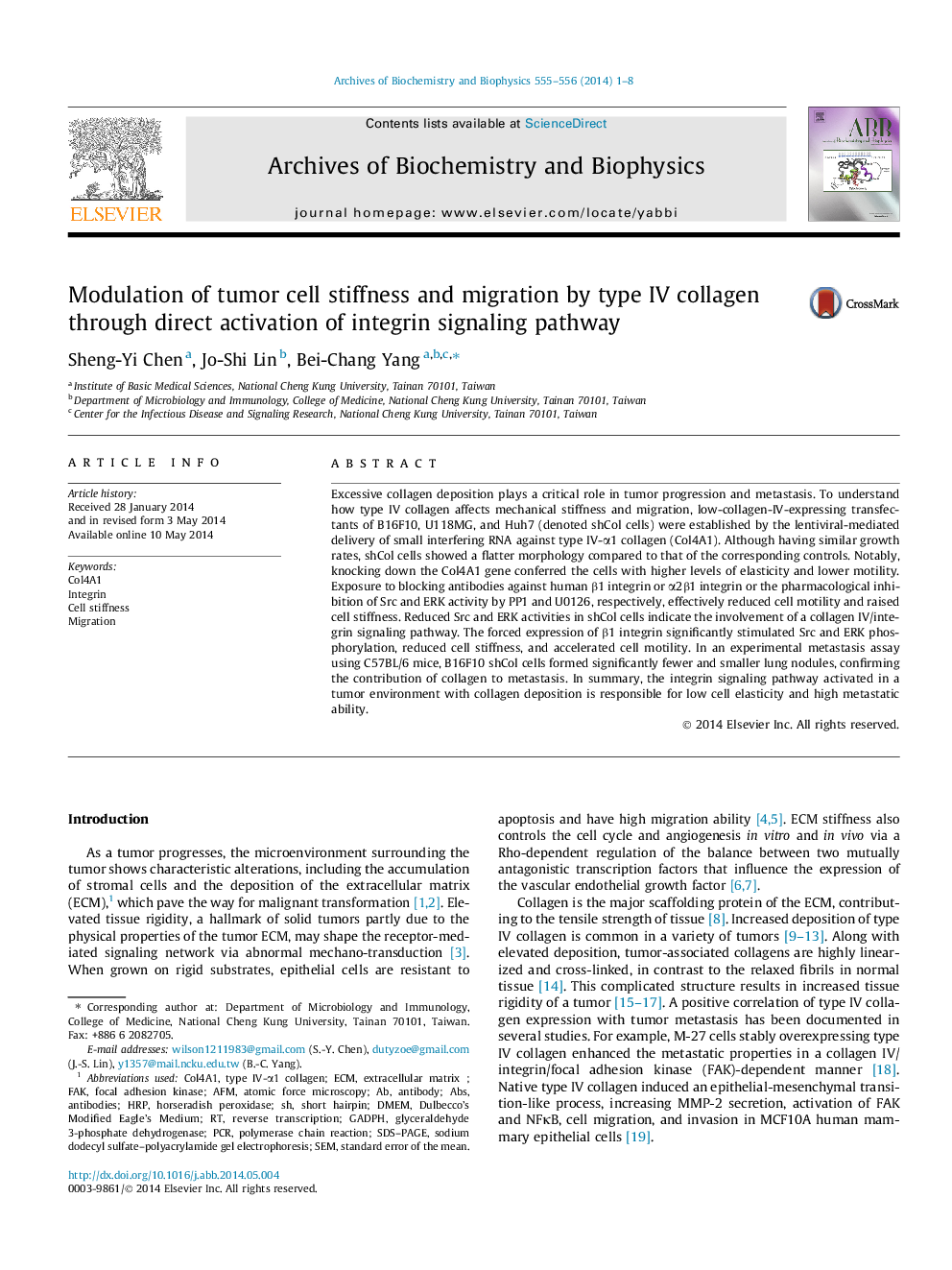| Article ID | Journal | Published Year | Pages | File Type |
|---|---|---|---|---|
| 1925140 | Archives of Biochemistry and Biophysics | 2014 | 8 Pages |
•Knocking down type IV collagen increased cell stiffness and reduced cell migration.•Cell stiffness and migration were modulated by collagen IV/integrin downstream signaling through Src and ERK kinases.•Exogenous human type IV collagen reverted the cell stiffness and migration of cells expressing low level of collagen IV-alpha 1.
Excessive collagen deposition plays a critical role in tumor progression and metastasis. To understand how type IV collagen affects mechanical stiffness and migration, low-collagen-IV-expressing transfectants of B16F10, U118MG, and Huh7 (denoted shCol cells) were established by the lentiviral-mediated delivery of small interfering RNA against type IV-α1 collagen (Col4A1). Although having similar growth rates, shCol cells showed a flatter morphology compared to that of the corresponding controls. Notably, knocking down the Col4A1 gene conferred the cells with higher levels of elasticity and lower motility. Exposure to blocking antibodies against human β1 integrin or α2β1 integrin or the pharmacological inhibition of Src and ERK activity by PP1 and U0126, respectively, effectively reduced cell motility and raised cell stiffness. Reduced Src and ERK activities in shCol cells indicate the involvement of a collagen IV/integrin signaling pathway. The forced expression of β1 integrin significantly stimulated Src and ERK phosphorylation, reduced cell stiffness, and accelerated cell motility. In an experimental metastasis assay using C57BL/6 mice, B16F10 shCol cells formed significantly fewer and smaller lung nodules, confirming the contribution of collagen to metastasis. In summary, the integrin signaling pathway activated in a tumor environment with collagen deposition is responsible for low cell elasticity and high metastatic ability.
